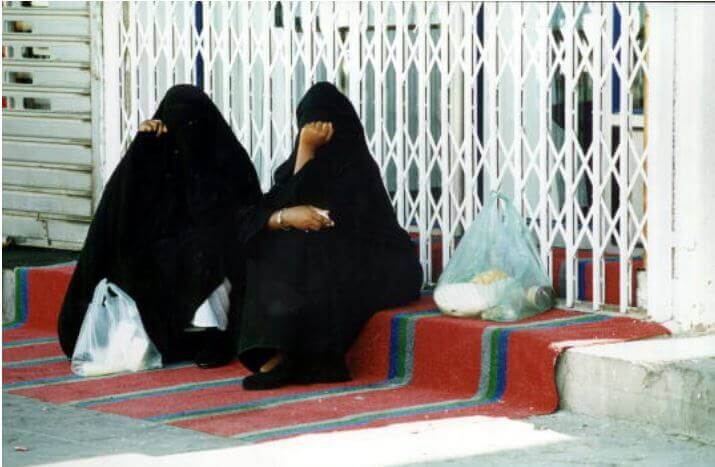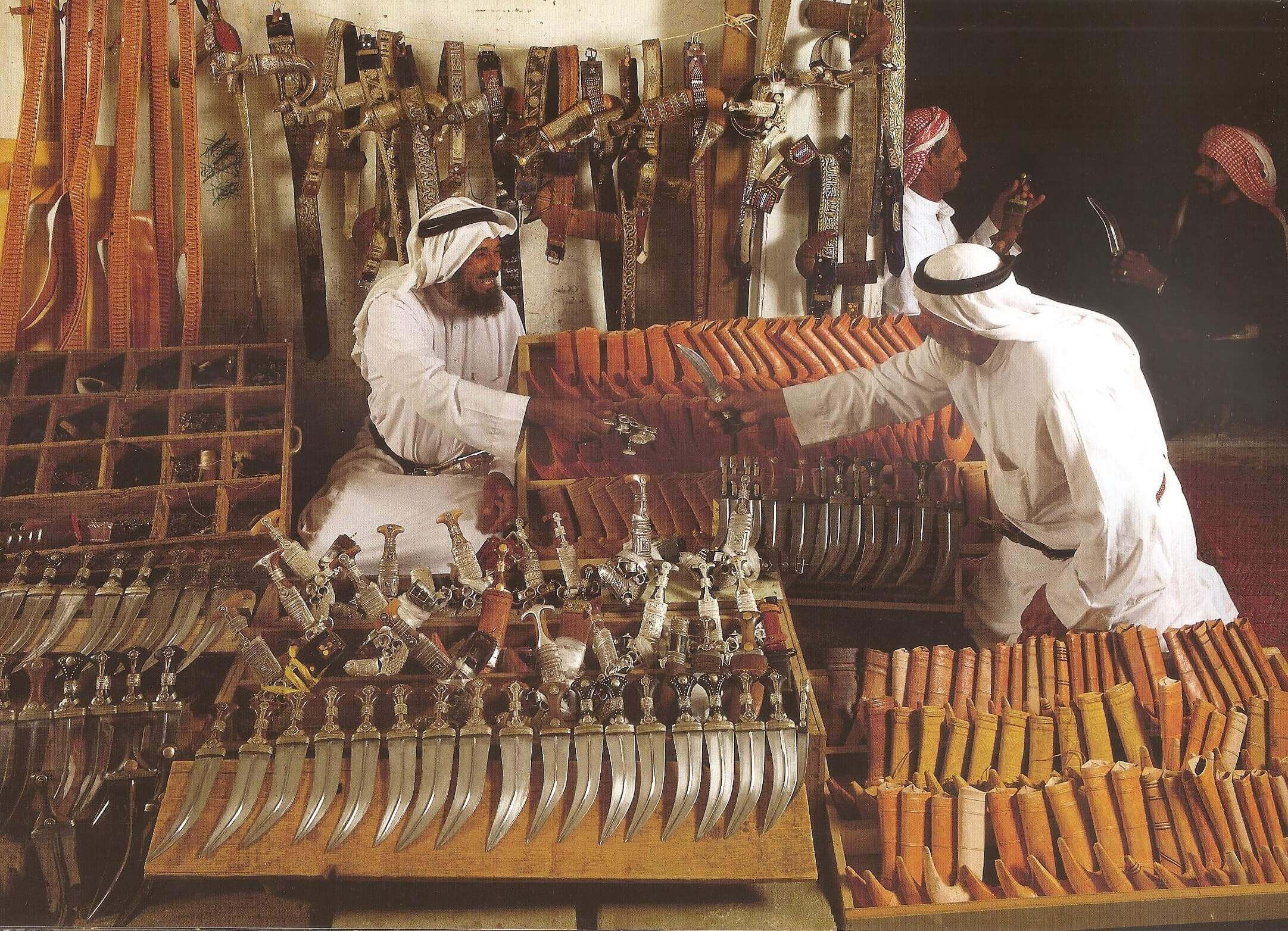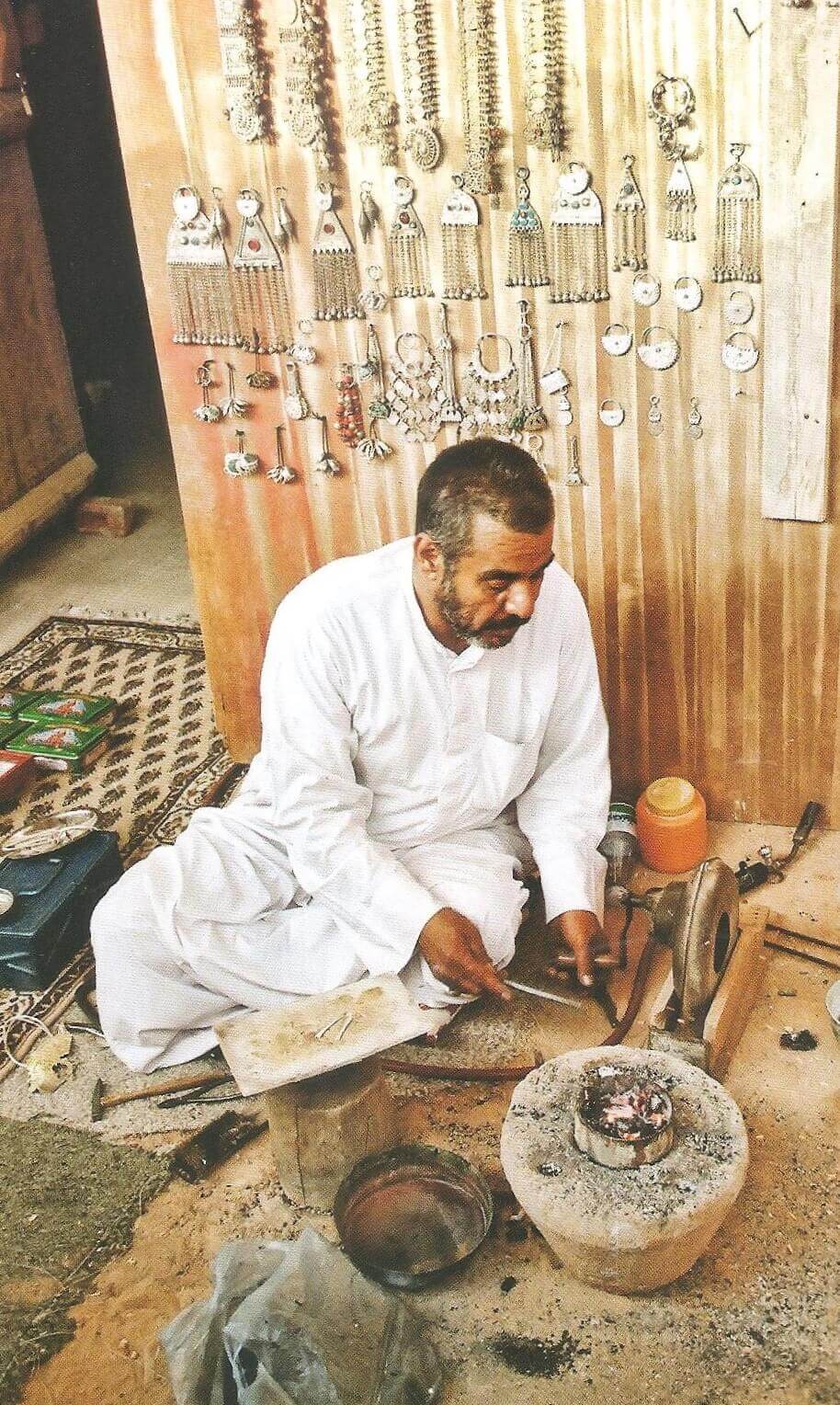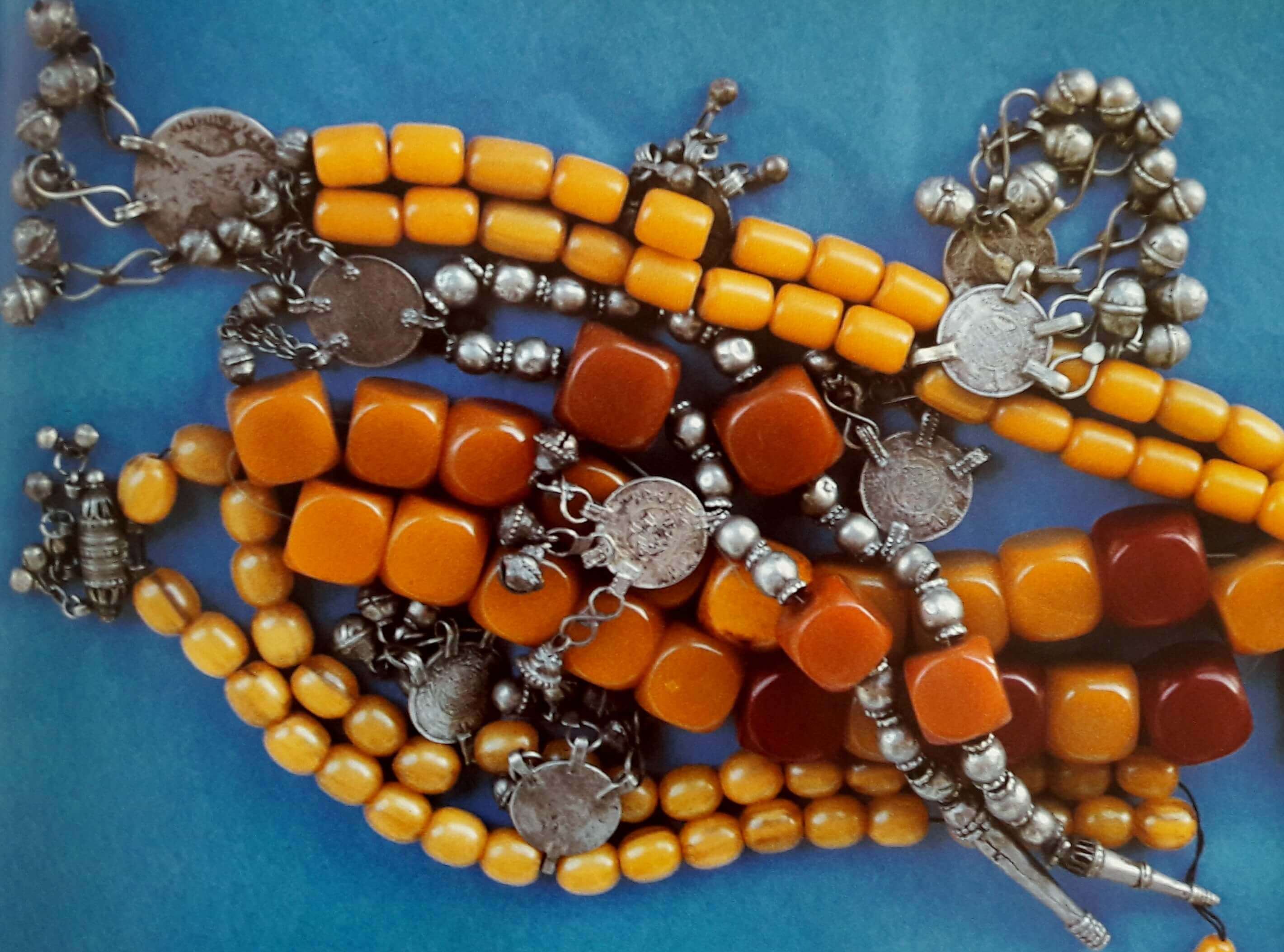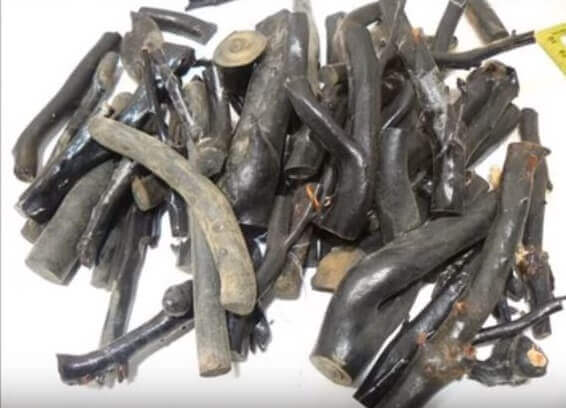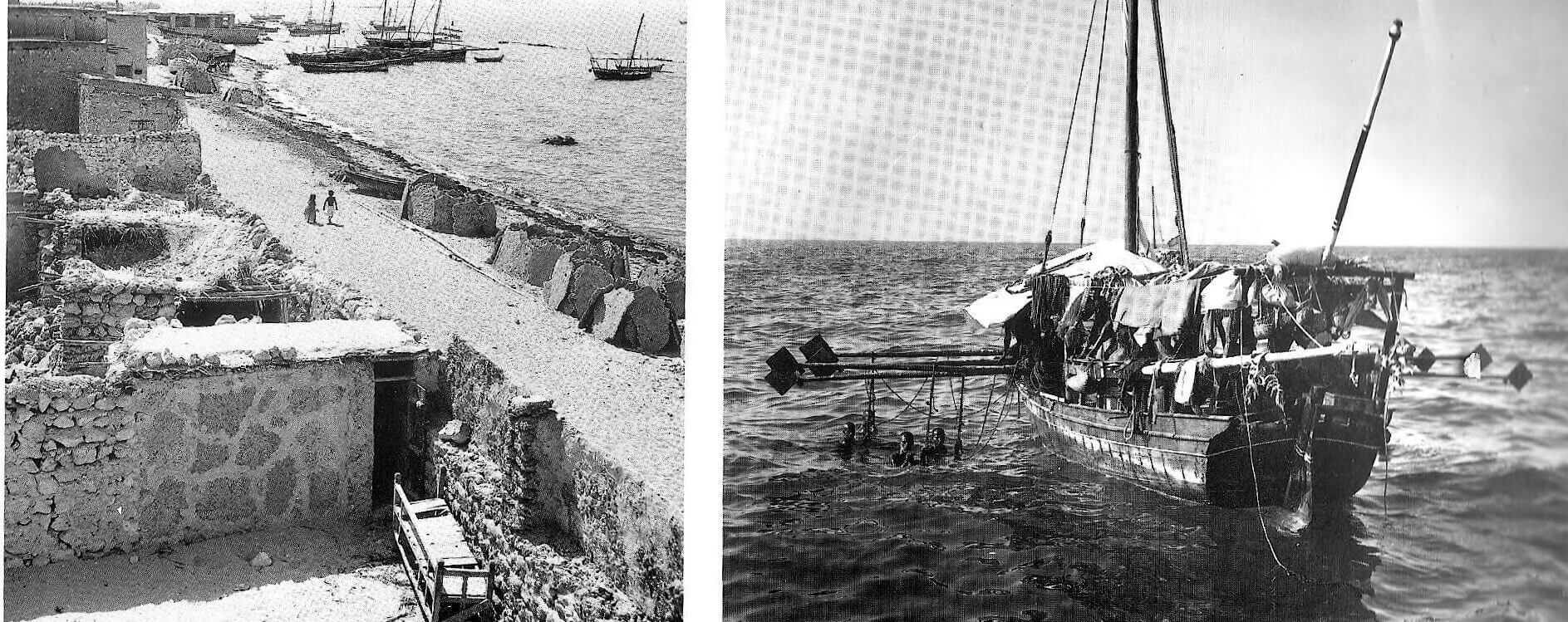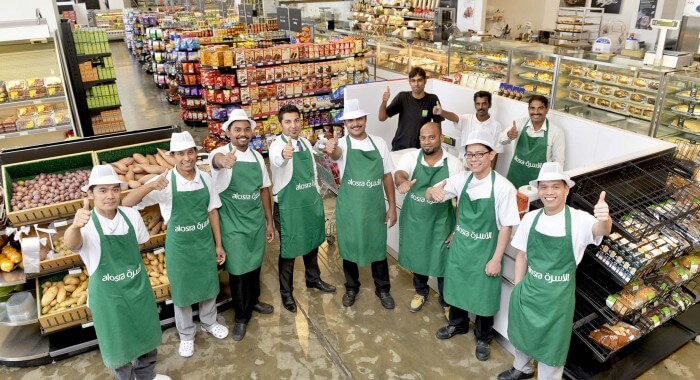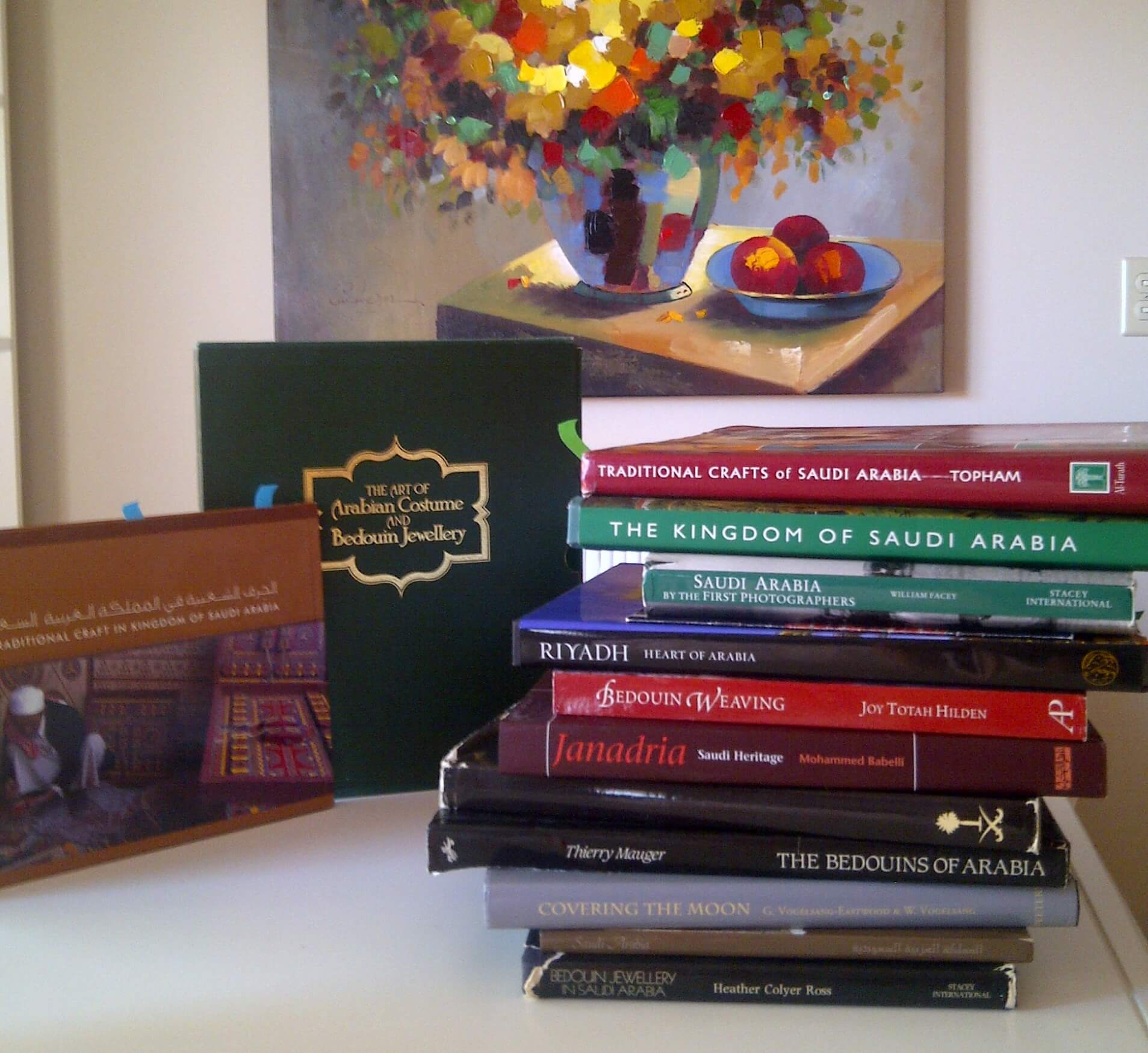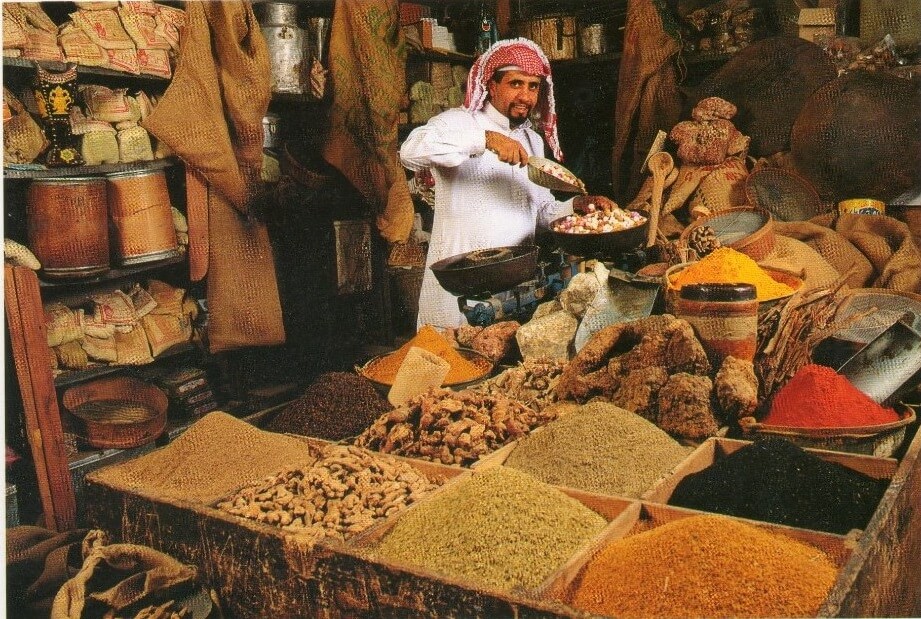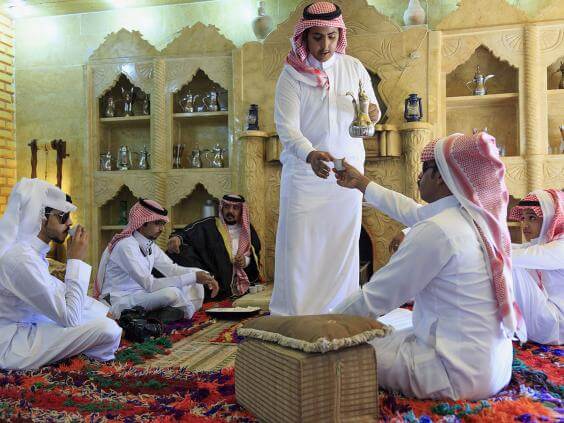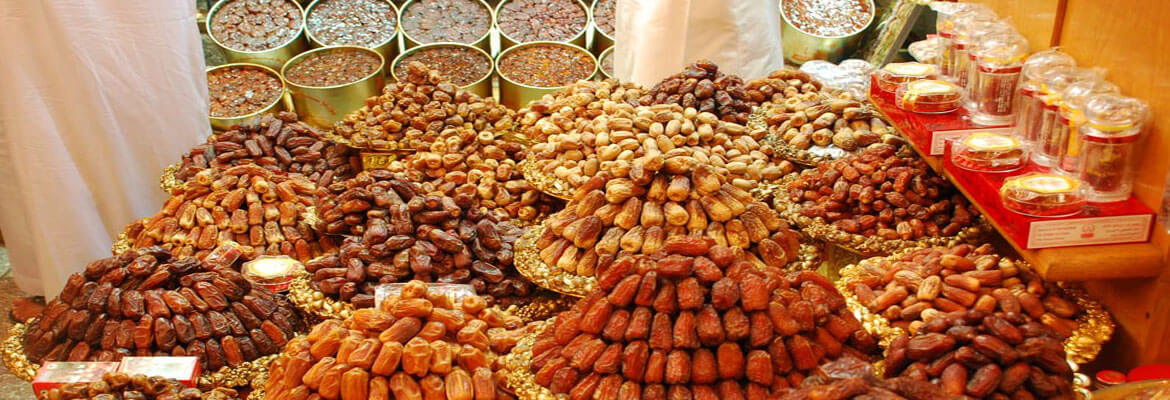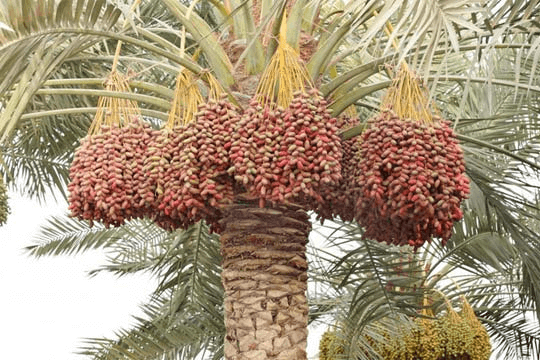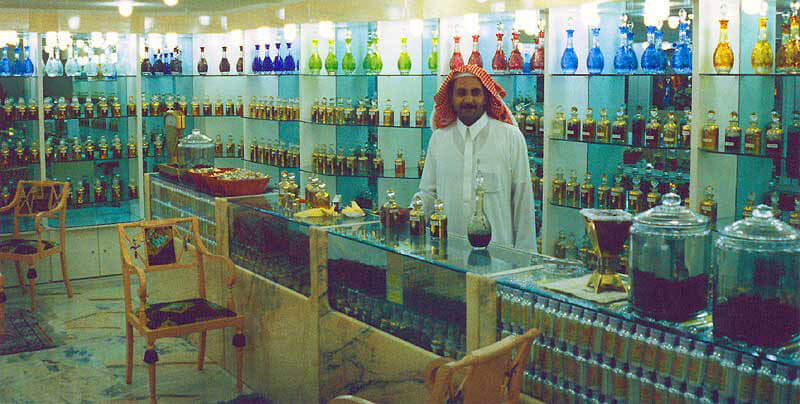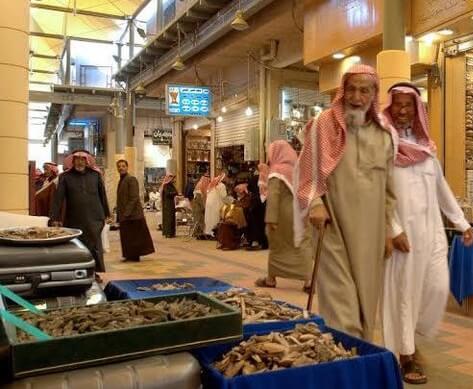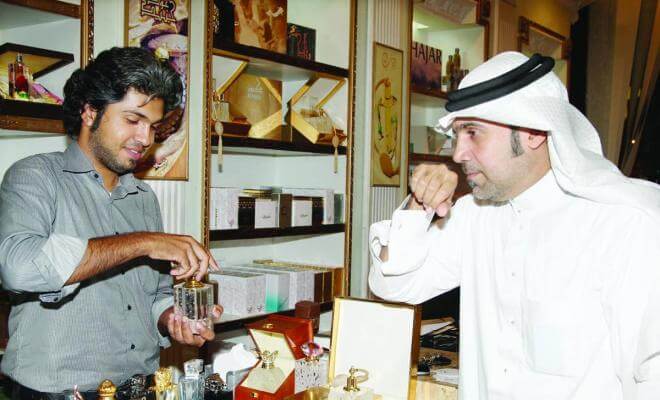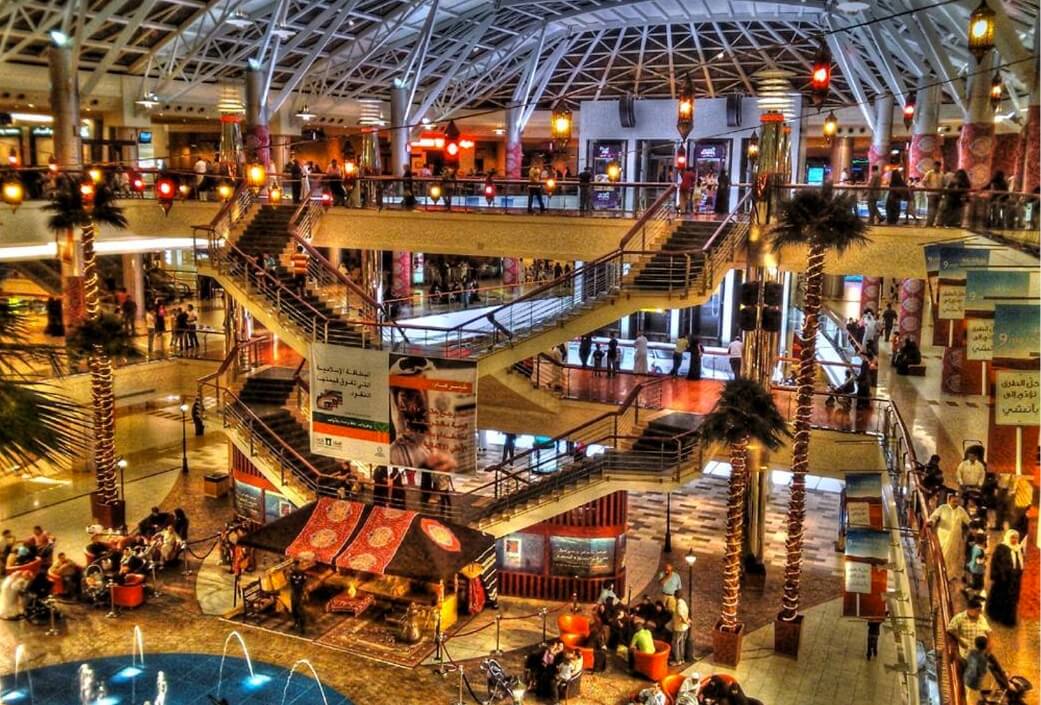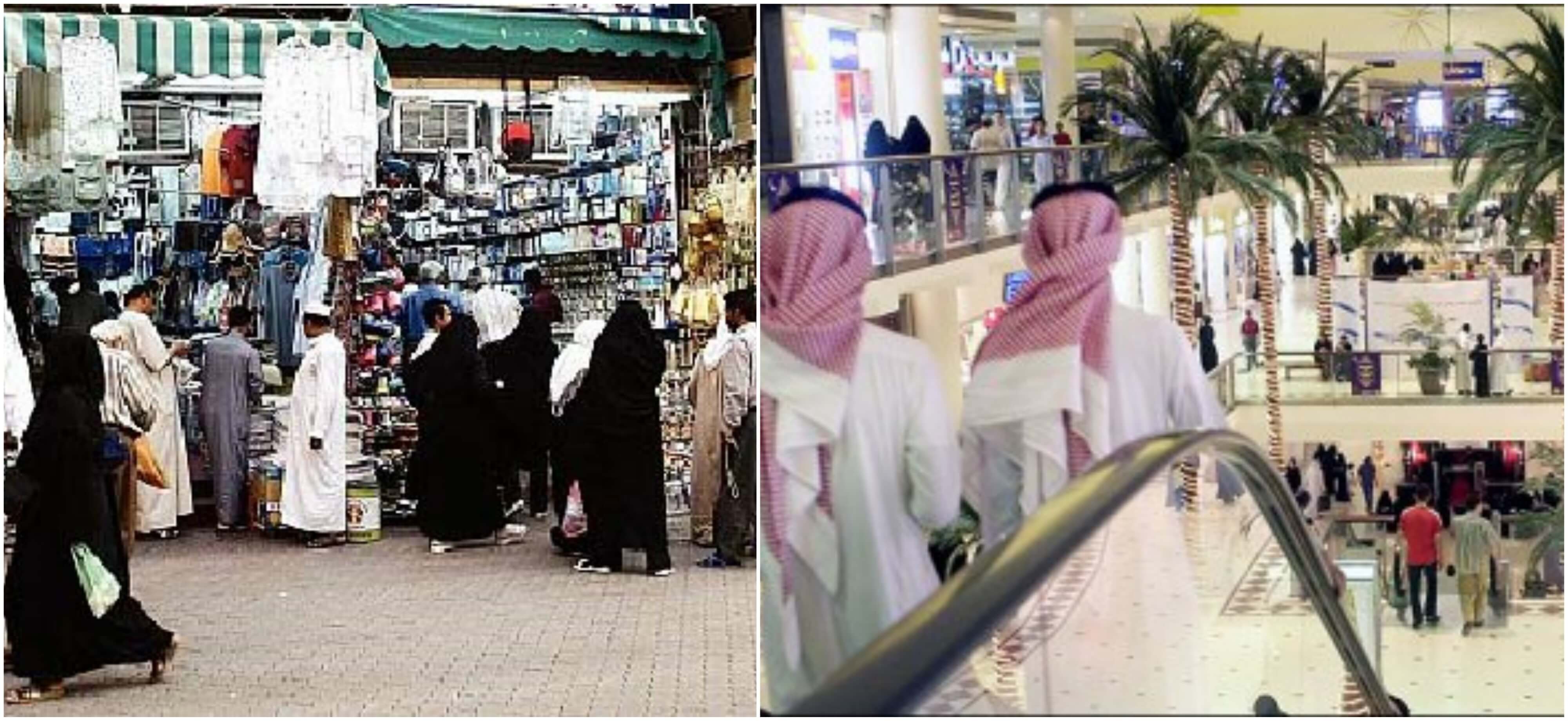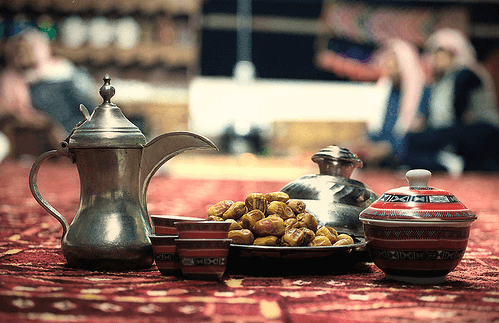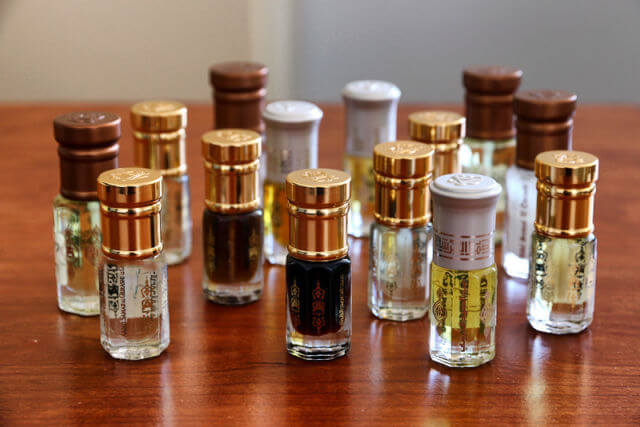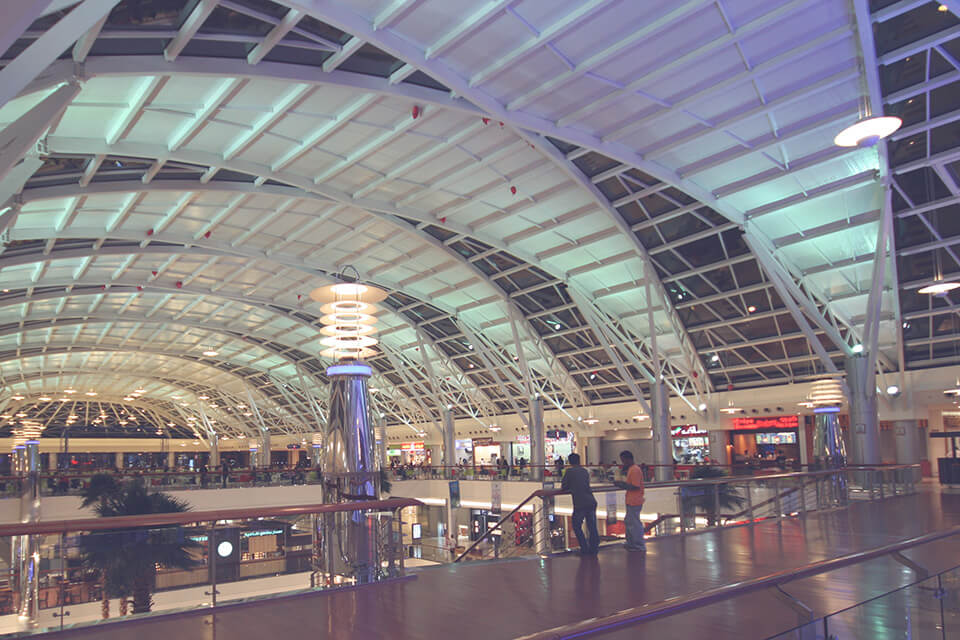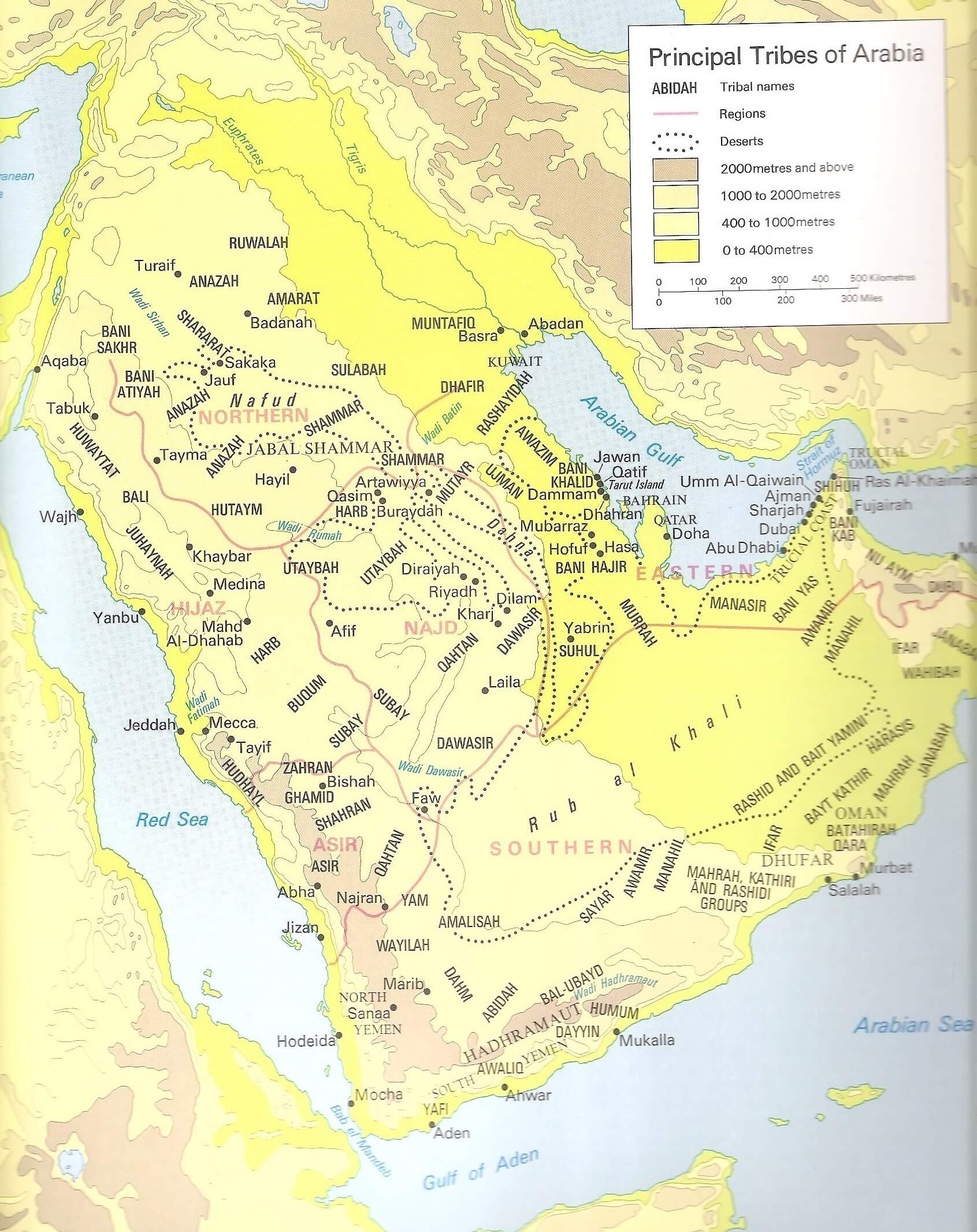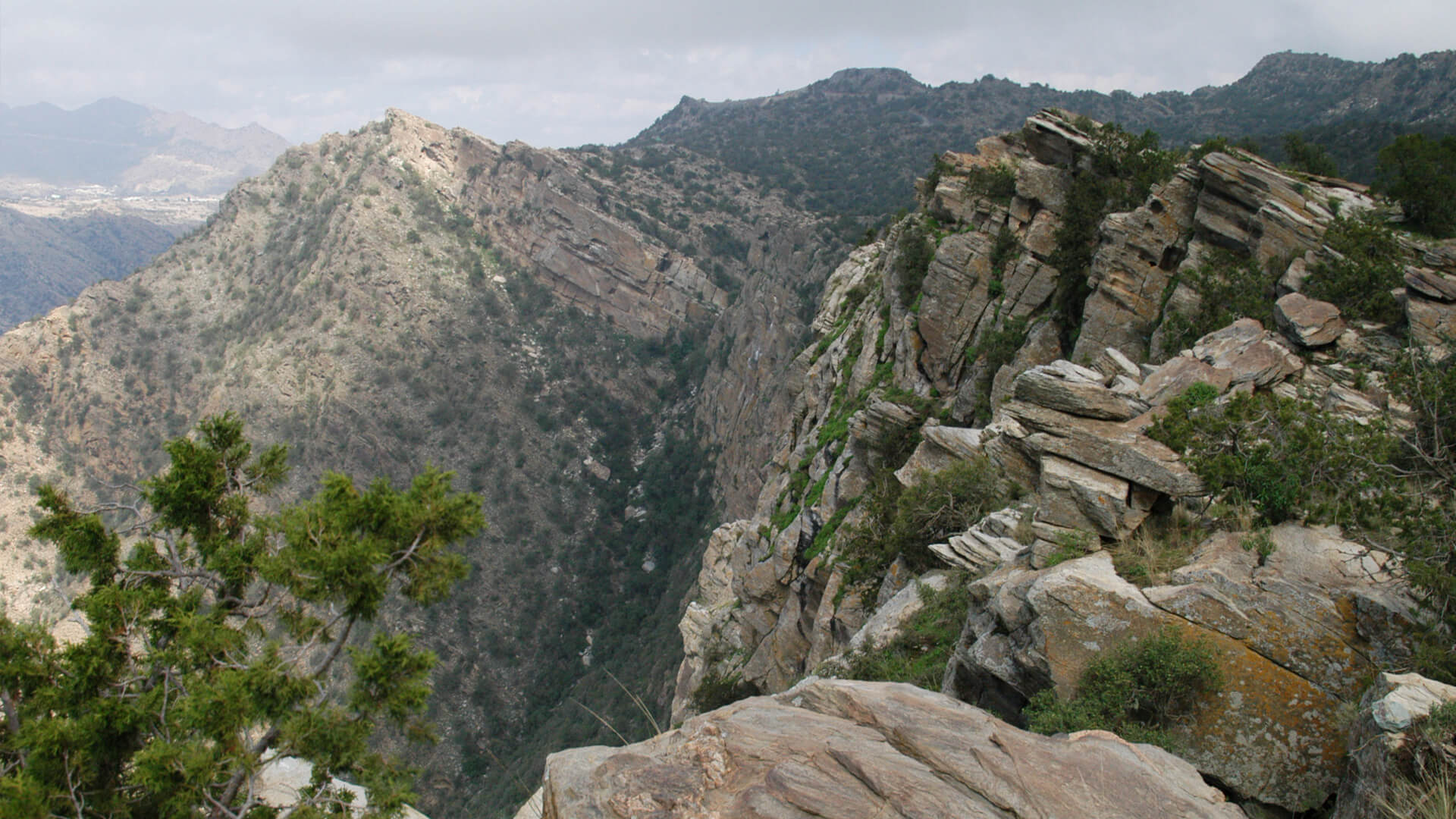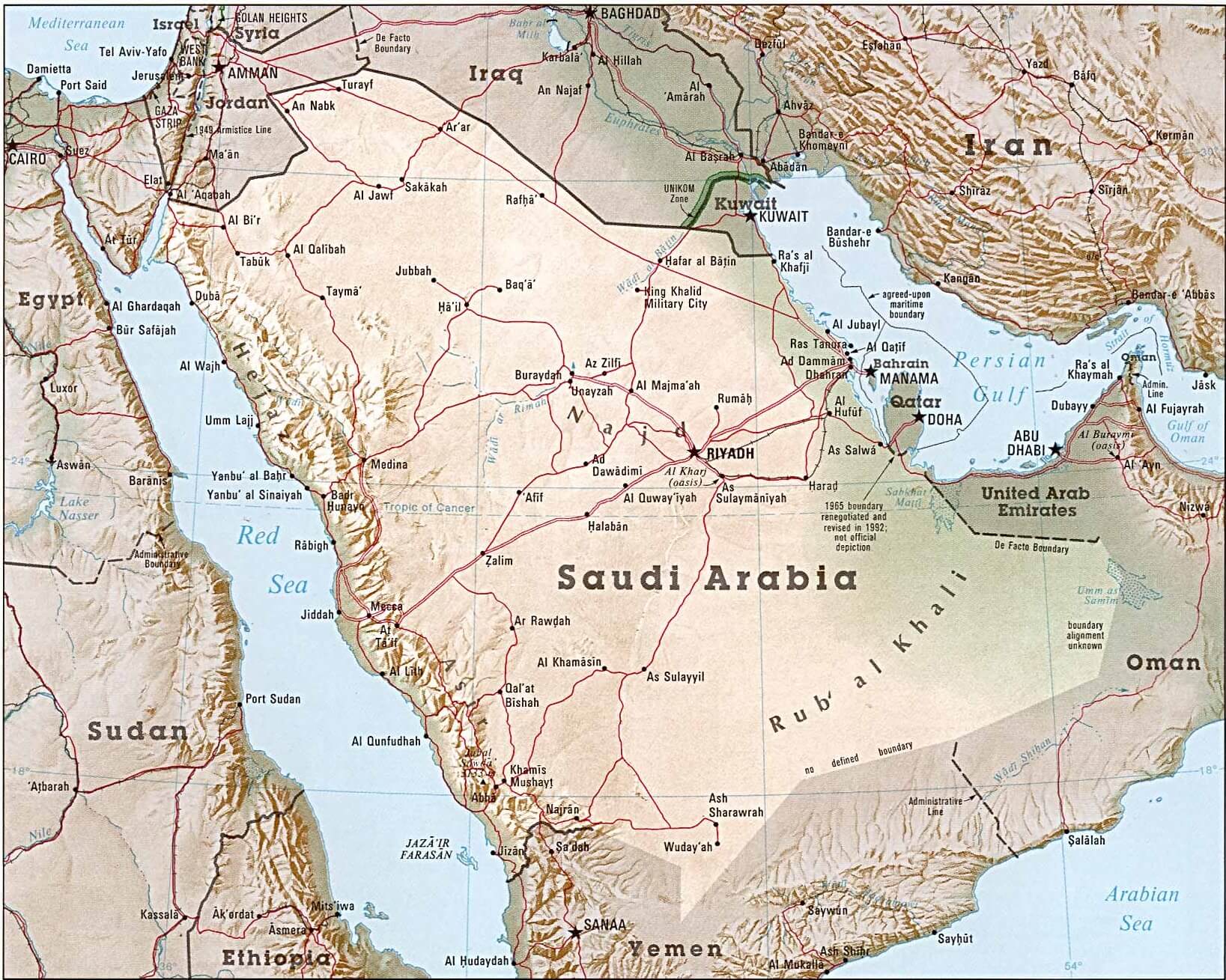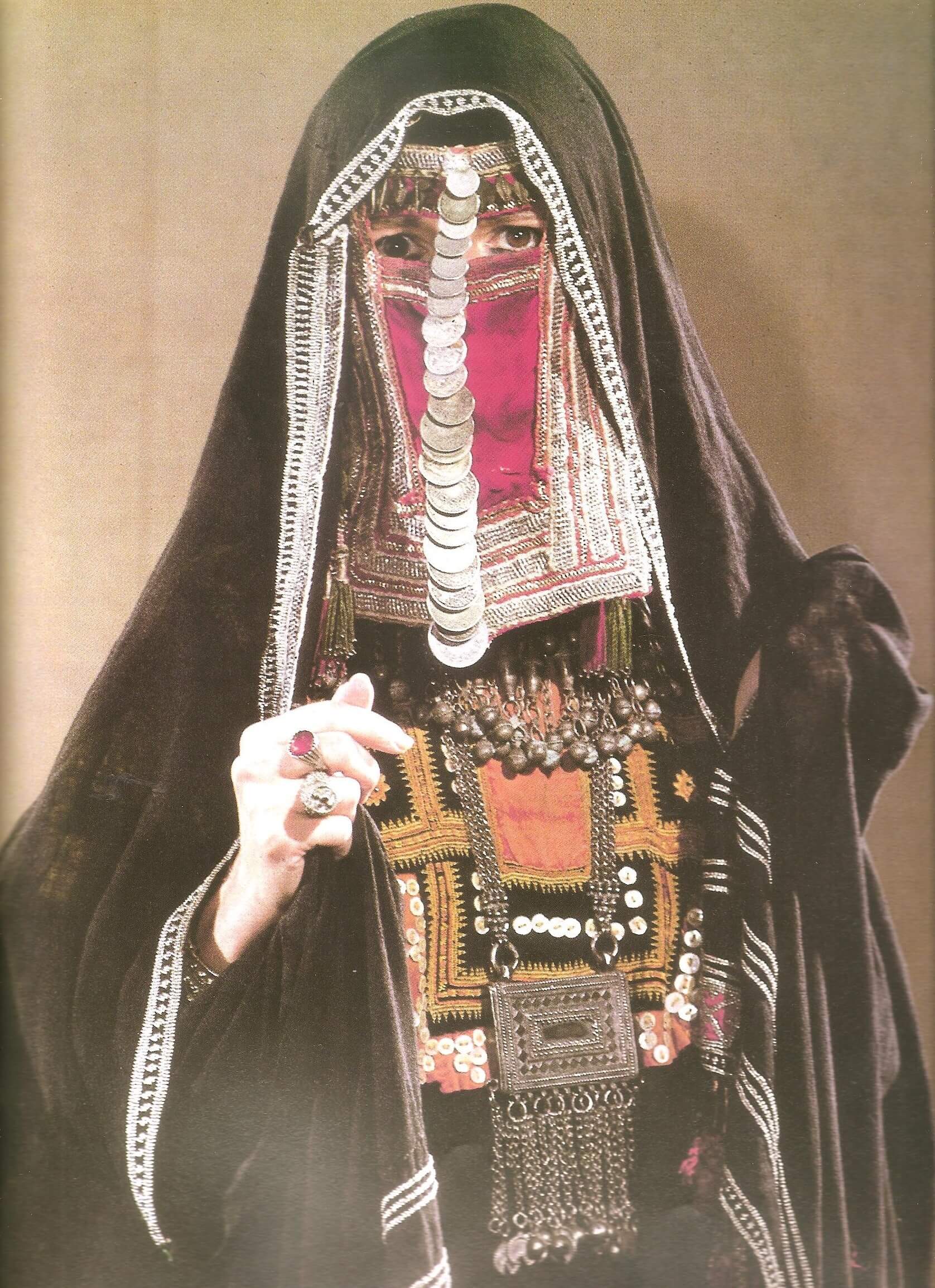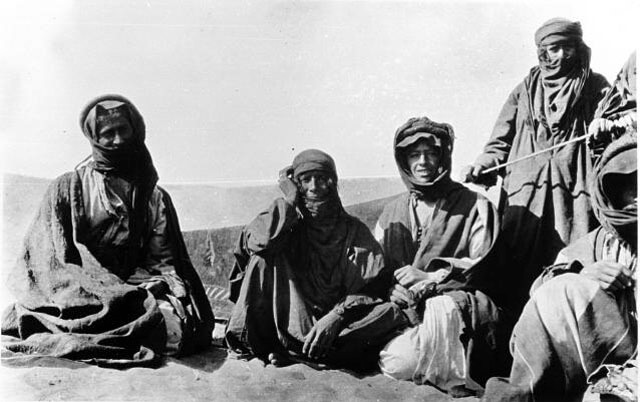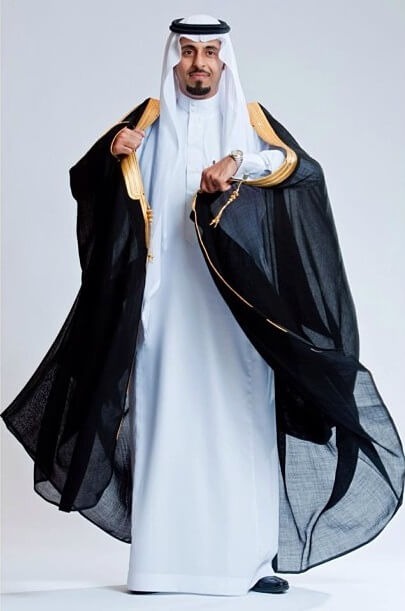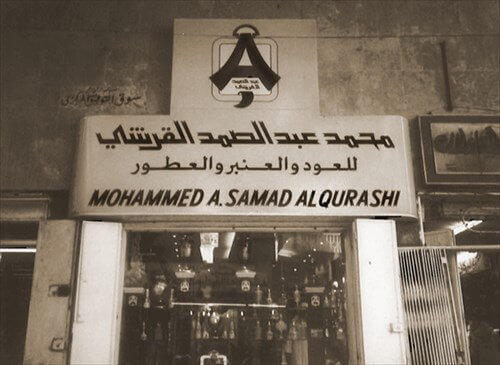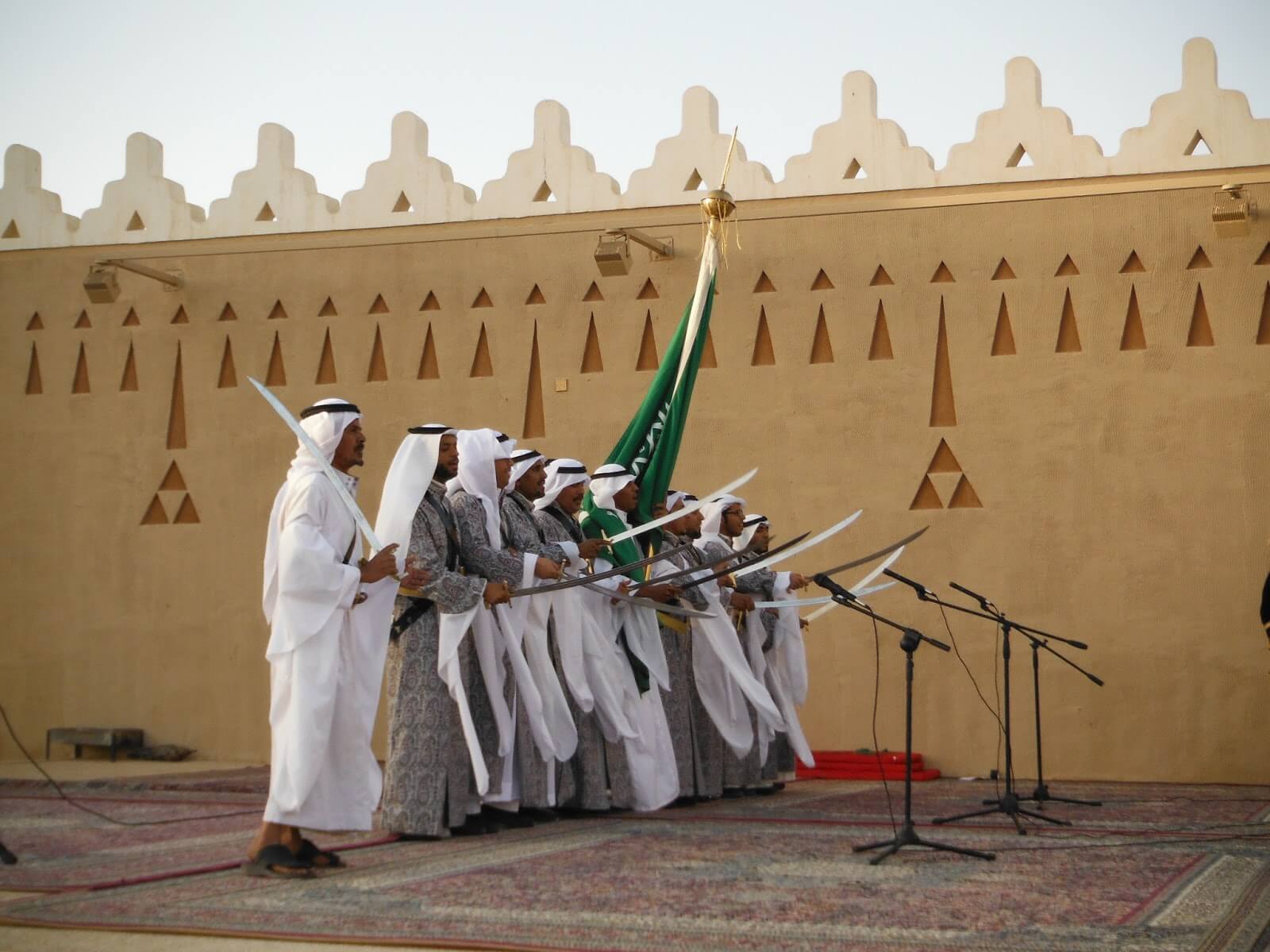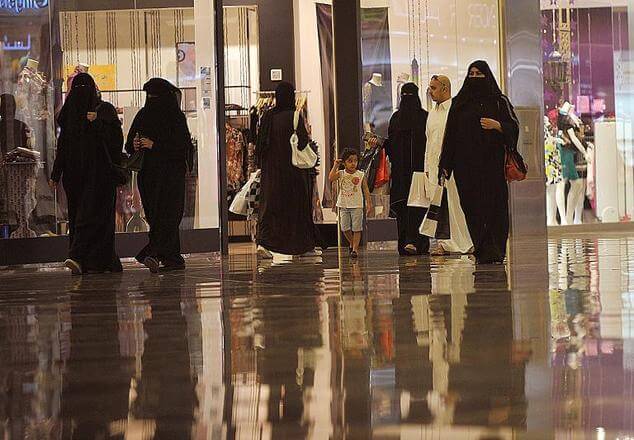What Souvenirs to Bring from Saudi Arabia – Part Nine of the Top 15 Ideas for Gift Shopping.
Shopping in Saudi souks.
You might have heard a lot about Saudi souks or souqs, the traditional ambient Arabian markets where all kinds of trinkets, knickknacks, haberdashery and whatnots are sold along with antique jewelry, weapons, furniture, household items and rugs.
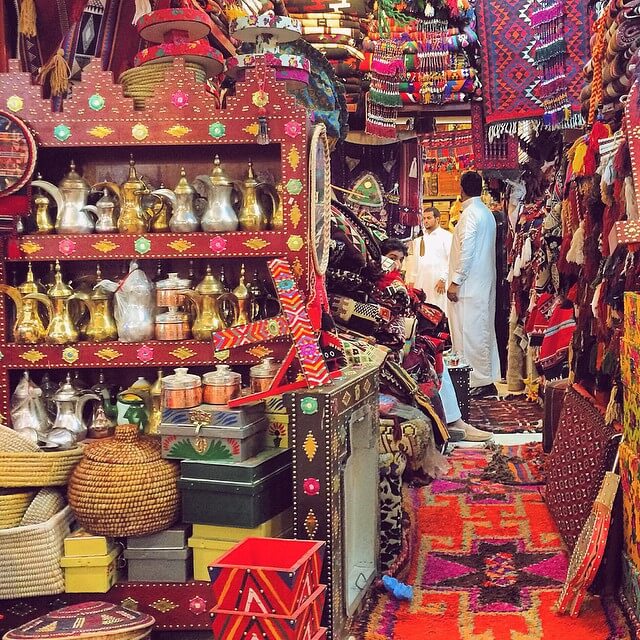
One of the numerous stores found in the Saudi souks
Ask two different people and you will have two opposing opinions about their souk shopping experiences. It’s a literally love or hate attitude. Some go unprepared for long walking distances, possible heat, endless shops with cheap low quality knockoffs, crowds of people, impossibility of orienting in the cramped streets, necessity to bargain (you are expected to negotiate the price at least 30% down from the initial). Unless you’ve got a lot of patience or a knowledgeable friend to take you around, your souk shopping mission will probably fail.
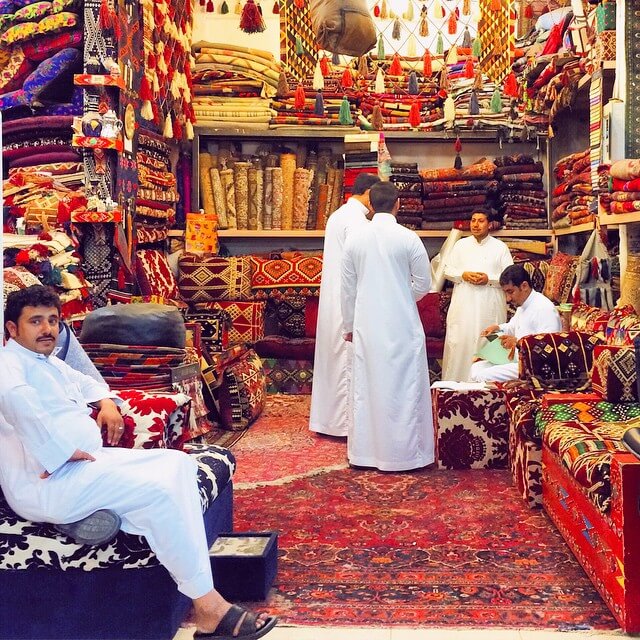
Store in one of the Saudi souks, specializing in rugs
Many people aim for antique shops of the Saudi souks.
In Saudi Arabia to my opinion a term “antique shops” is not quite valid for a number of reasons.
Firstly, I wouldn’t call an item “antique” if it was made less than a century ago. To be precise, antique to me means handmade prior to the industrial era (1930s), with no machine made elements, a relic of a bygone era. The country of Saudi Arabia is less than a hundred years old, and the inhabitants of the territory had mostly a nomadic style of life. Would you expect to find antiquities in a continuously moving household?
Secondly, even if you have found any, owning or selling antiquities without having proper paperwork is illegal (and financial rewards are given to those who report violations of the Kingdom’s antiquities laws).
According to the Saudi Commission for Tourism and National Heritage, anyone who identifies an artifact and sells it or exports it will be fined SR15,000. Individuals who possess an artifact and fail to submit a report to the commission regarding this (ie those owning unregistered original artifacts without proof of ownership) will be fined up to SR10,000.
I would rather use a word “vintage” or “collectible” when referring to the genuine items of age and value sold in the specialized souk shops. However genuine Saudi vintage goods (meaning around 50 years old) are rarely found nowadays, and there are lots of replicas or items produced outside the Kingdom.
An item being old doesn’t necessarily qualify for being vintage or collectible. Nevertheless some old used objects (be it a piece of furniture, a household article or a piece of jewelry) carry their specific charm and definitely a story.
I would advise to focus on looking for typically traditional things used in Saudi Arabia (new or old).
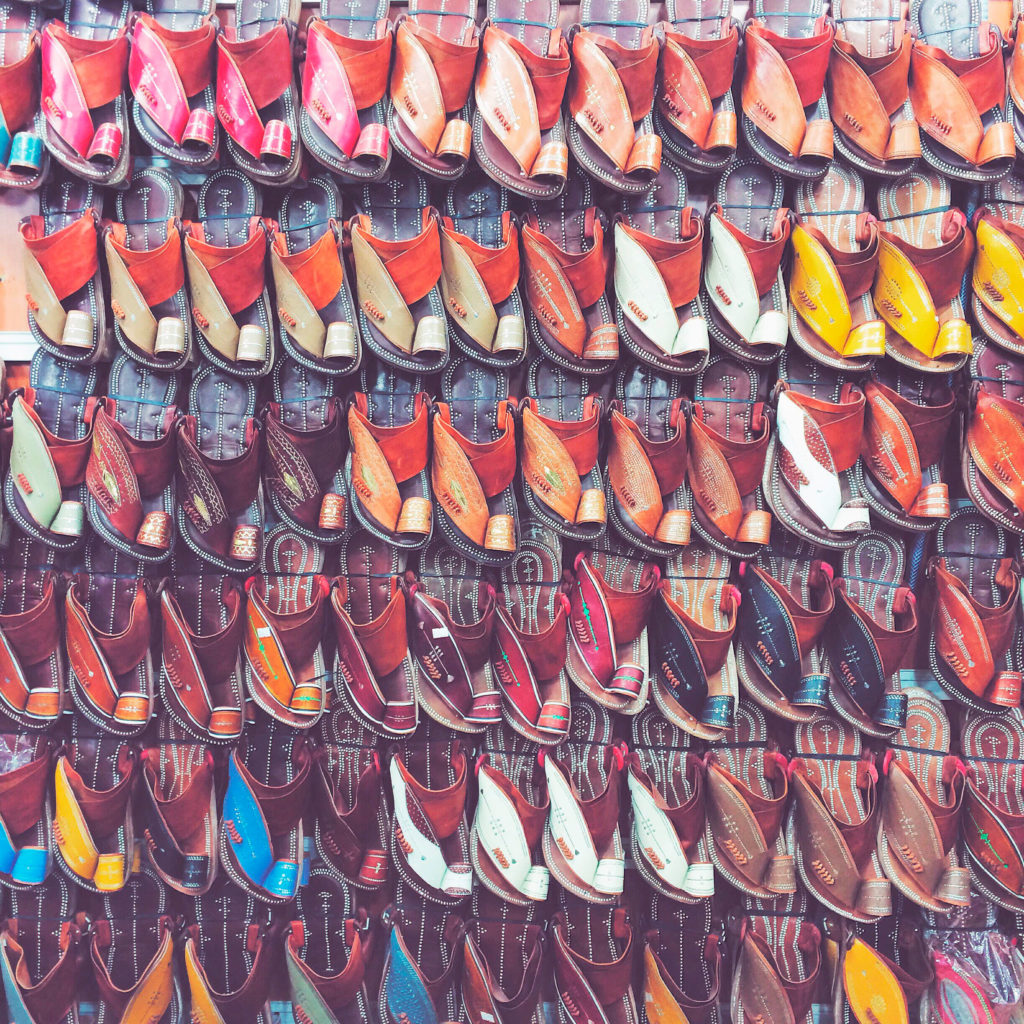
This thonged style of Saudi sandals is popular today, just as it was popular with the previous generations of Saudi Arabs.
Leather Saudi sandals are comfortable enough to wear and fairly colorful to be framed and hang on a wall back home. Those handmade locally by Saudi craftsmen from camel hide cost a small fortune. Most of sandals are cow-hide and are imported from India and other countries, very cheap.
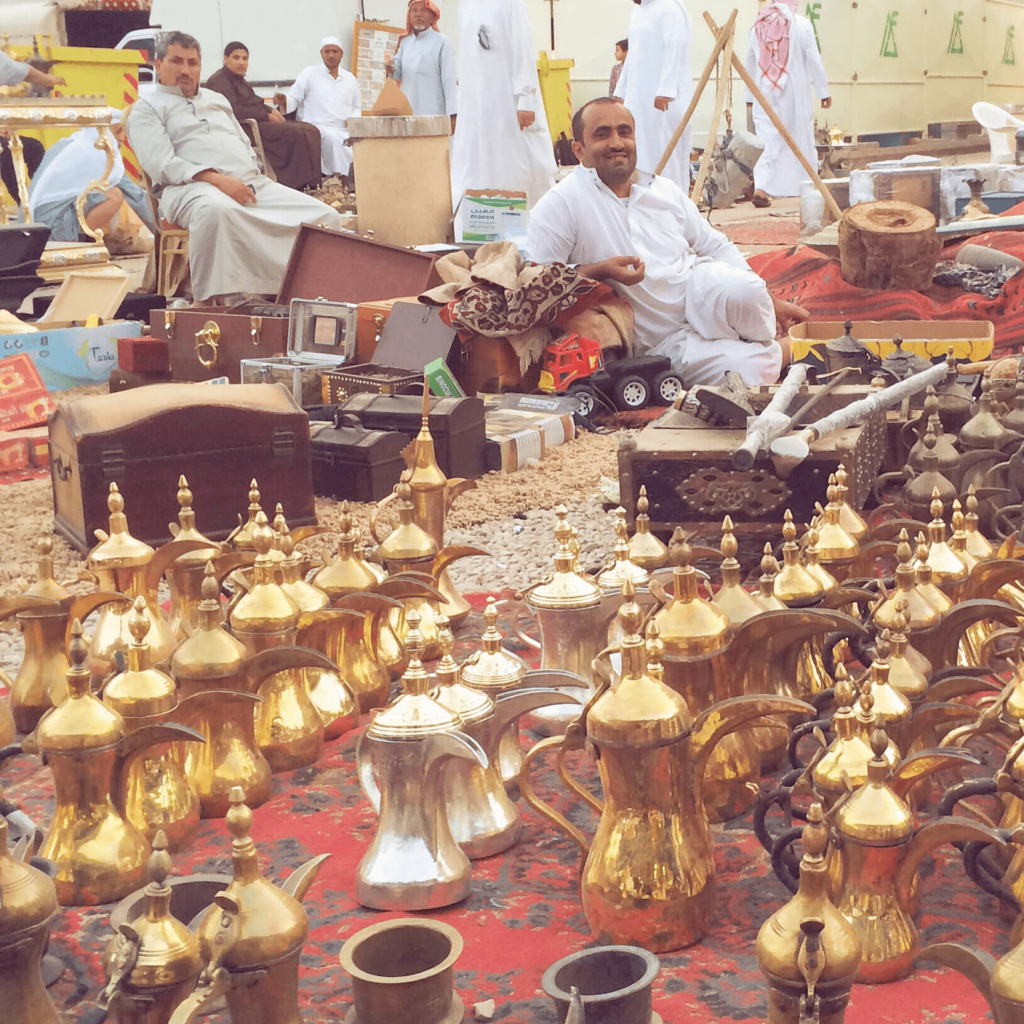
A relaxed dallah seller in a Saudi souk
Souks is a place to buy a dallah (read more about a traditional Saudi coffee pot dallah here What Souvenirs to Bring from Saudi Arabia – Part Six of the Top Ten Ideas for Gift Shopping.)
Golden jewelry is sold in specialized shops, usually clustered in certain corners of the souk.
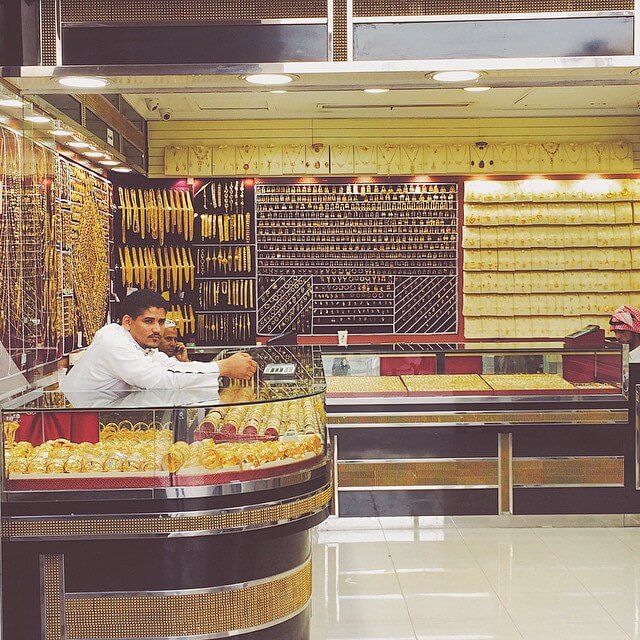
Gold jewelry on sale in a jewelry shop of a Saudi souk
As a rule, stores carrying same kind of produce are located close to each other. “Birds of a feather flock together”.
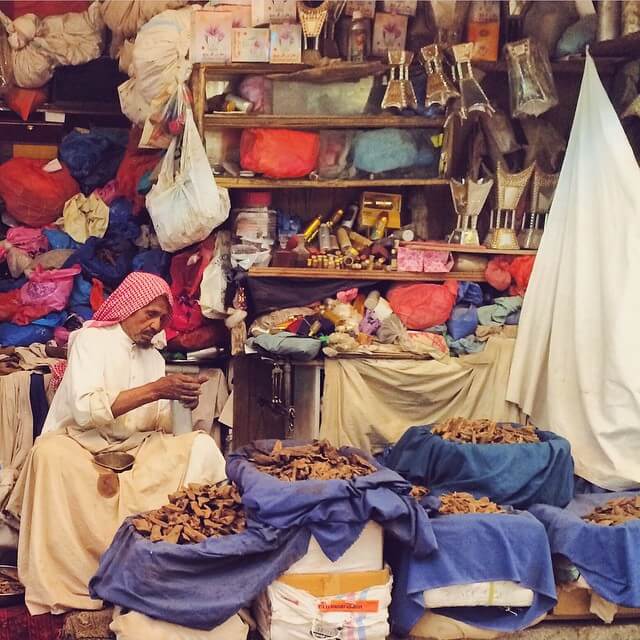
A perfumery boutique in Saudi souk.
If you read the blog post about the traditional Arabic coffee pots What Souvenirs to Bring from Saudi Arabia – Part Six of the Top Ten Ideas for Gift Shopping you will be able to recognize these items:
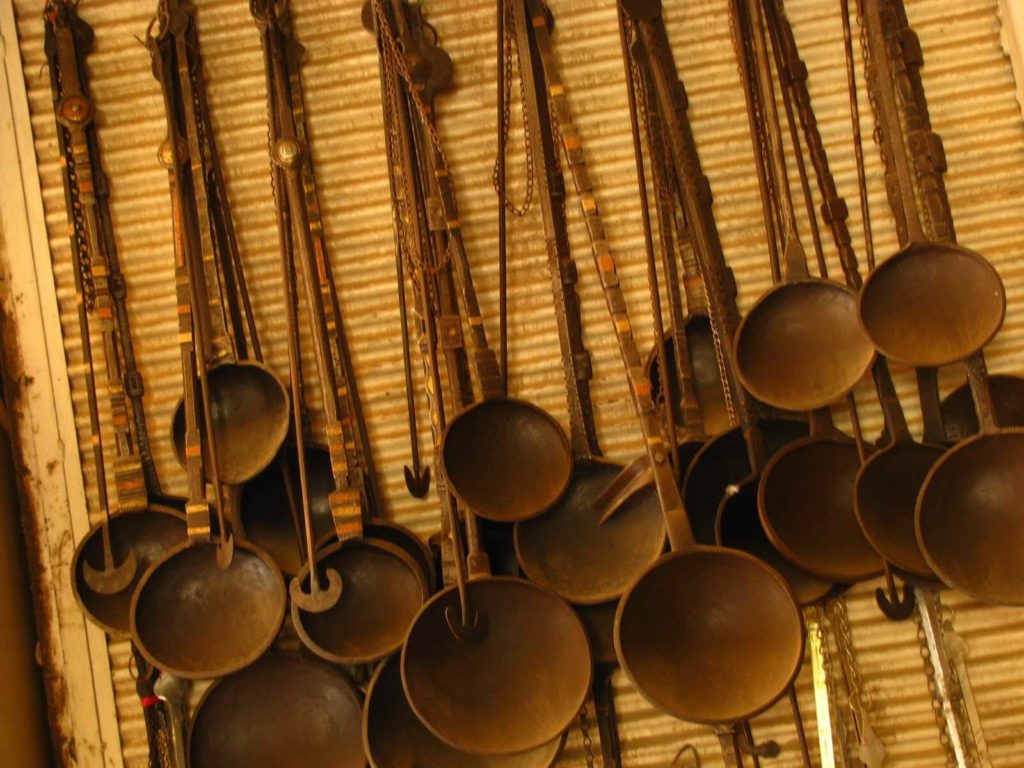
Roasting pans and stirrers, absolutely necessary for preparing traditional Arabic coffee.
If you chose to buy date paste from a Saudi supermarket, you will absolutely need a maamool mold to make Saudi cookies.
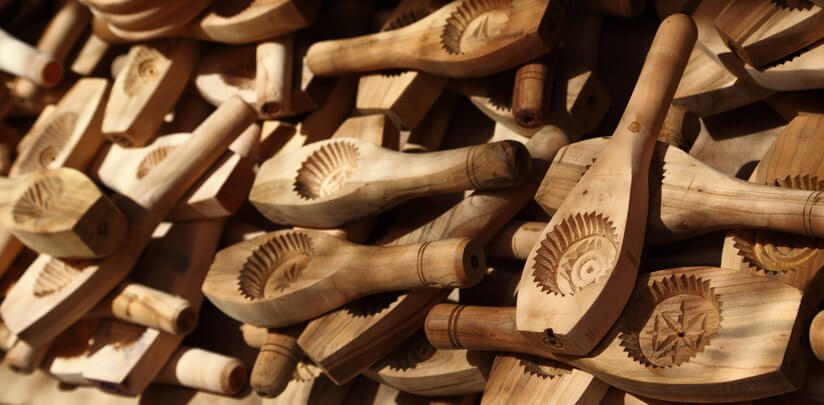
Maamool molds with a variety of ornaments for cookies.
Making maamoool cookies is easy although a bit time consuming, but definitely fun. There is a good recipe here and one more here
These kitchenware tools might find their place in your kitchen as a decoration piece or useful cooking tool!
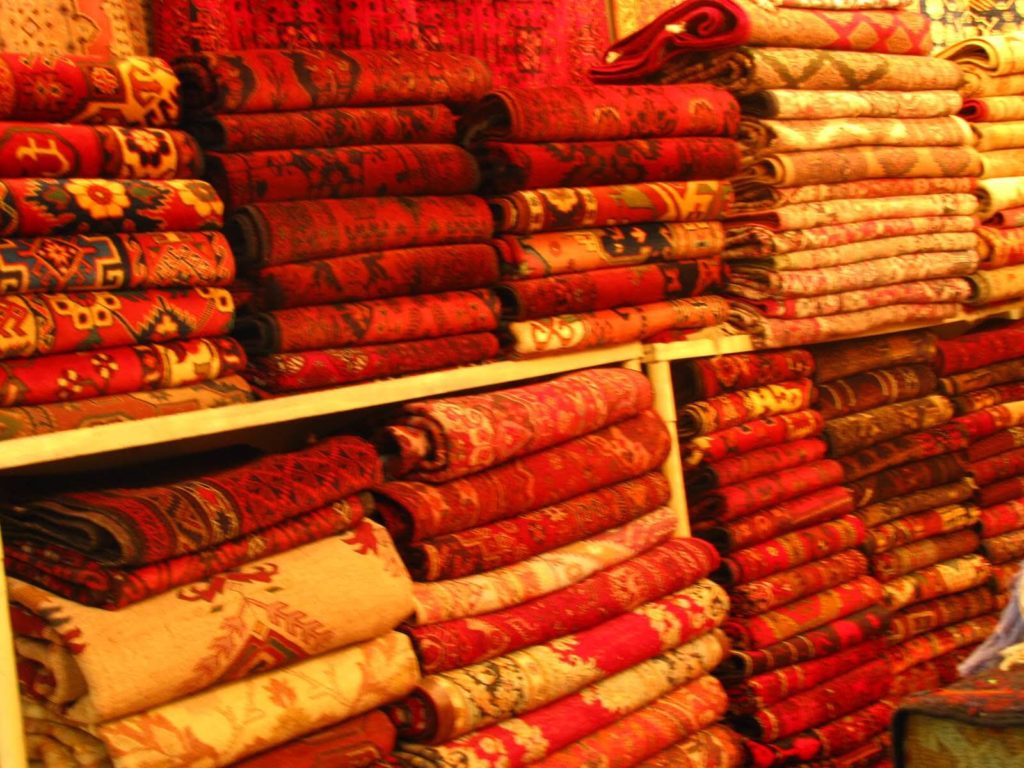
Pallets and pallets of rugs
A handful of “amber” beads (which in the most cases are bakelite, but nonetheless vintage and collectable) will look great in a decoration plate on your teatable.
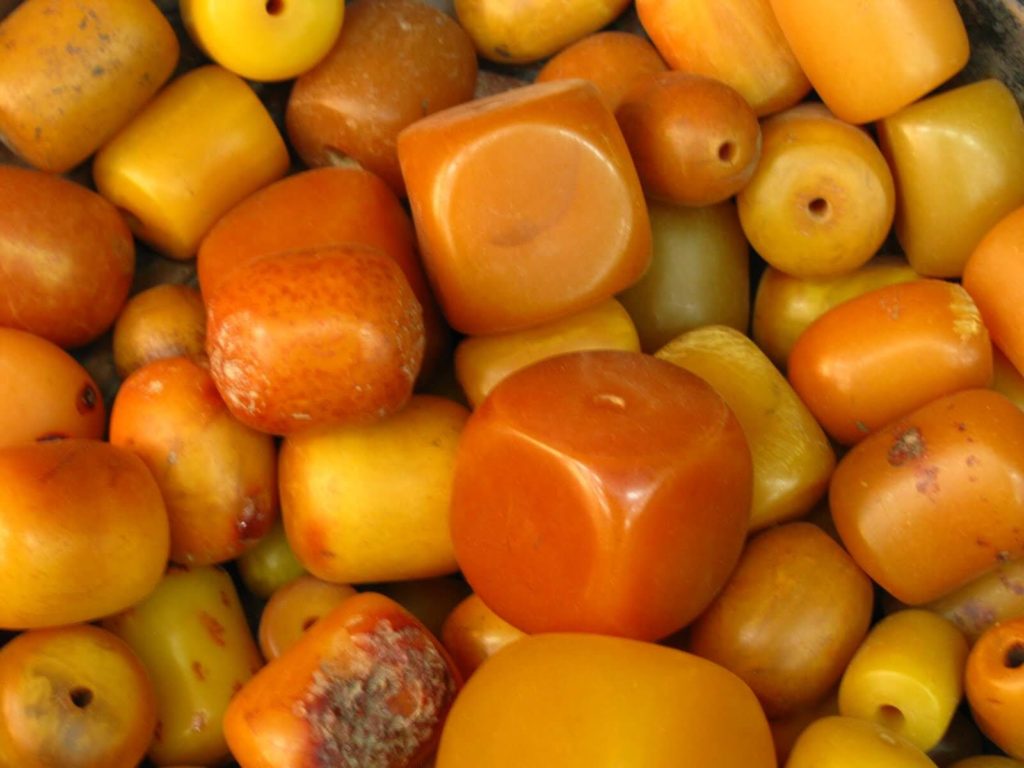
Large loose beads found in Saudi souks
All kinds of “jewelry”, vintage mixed into new, plastic and metal, made outside Saudi Arabia.
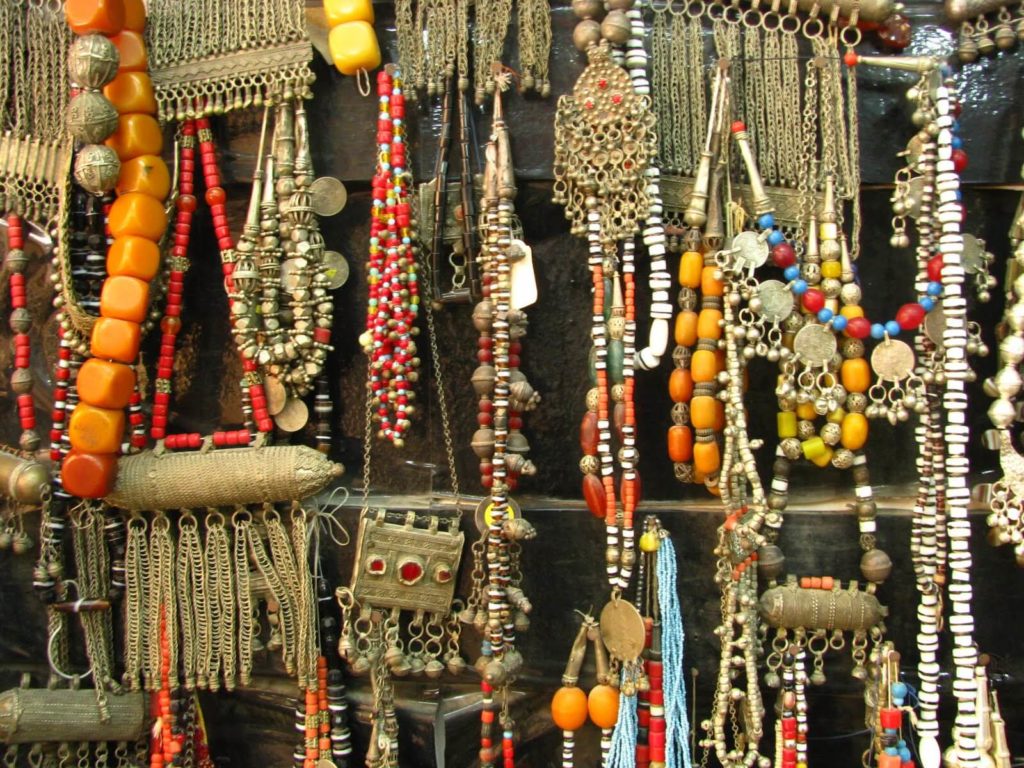
Jewelry in the display in Saudi souks
You now have an impression of things that can be found in 95% of stores in Saudi Arabian souks located in large cities. Read on and get some advice on shopping for collectibles in Saudi Arabia.
The most important part of the Traditional Saudi Mens’ dress is a long woolen mantle called bisht. The next post describes this beautiful garnment in detail.

